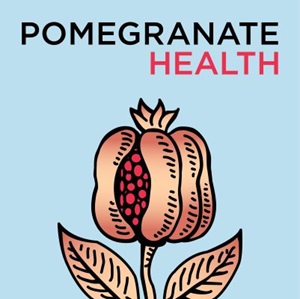Pomegranate Health
Welcome to Pomegranate Health — a podcast about the culture of medicine.

You'll hear insights from clinicians, researchers, and advocates as they tackle the most important questions — like how to make difficult clinical and ethical decisions without being influenced by bias, how to communicate better with patients and colleagues, and how to provide healthcare that’s both efficient and fair.
For a sampler of the varied themes of professional practice take a listen to Episode 132 and Episode 125.
If you're a Fellow of the RACP, time spent listening can be counted toward your CPD hours. And if you're a Basic Physician Trainee, the [Case Report] series can help you prepare for your long case clinical exams.
This is also the home of [IMJ On-Air], featuring authors from the Internal Medicine Journal sharing their latest research. Plus, the [Journal Club] episodes give RACP researchers a space to talk through their work published in other academic journals.
We’d love to hear your thoughts — feel free to leave a comment on each episode or send feedback and ideas to podcast@racp.edu.au.
Latest episodes
Ep81: Advocacy from the Top
This episode features two physicians who took advocacy to the next level and ran for Federal Parliament. They explain the process of getting health policy heard and how to push it through the Canberra machine and onto the political agenda.
Ep80: Healthcare in a Volatile Climate
Australia will warm by more than three degrees by the end of the century with a direct impact on heat-related morbidity. It will also experience more frequent natural disasters and the RACP is calling for national coordination to help the health care system adapt.
Ep79: Melanoma vs the Double-Edged Sword
Immunotherapy has revolutionised care for patients with advanced melanoma but it’s not possible to identify responders in advance. We explore conversations with patients around expectations for prognosis and toxicity.
Ep78: The Advocate’s Journey
The three word mission statement of the RACP is Educate - Advocate – Innovate. In this podcast we hear from physicians who have taken up a cause, and how the College can help amplify the message.
Ep77: Deciding with Children
When can a child be considered to have autonomy to make healthcare decisions for themselves? How should responsibility for difficult decisions be shared between the patients, the parents and clinicians? And is it possible to minimise the moral injury when the wishes of the patient need to be over-ruled?
Ep76: Making Amends- Medical Injury Part 3
In Australia, litigation is the only way for victims to get financial compensation for the medical injury. New Zealand, by contrast, operates a no-fault scheme where the costs of hardship and ongoing care are born by the government for many harms incurred in healthcare.
Ep75: Feeling Guilty- Medical Injury Part 2
Perhaps the greatest barrier to incident disclosure is culture of medicine itself. This podcast explores the guilt that can come about from having caused harm, and the cognitive dissonance this creates in one’s professional identity as a healer.
Ep74: Saying Sorry- Medical Injury Part 1
Medical injury occurs at a rate of about 12 per cent of admissions but is often not disclosed to patients or their families. This podcast explores why practitioners may be fearful of admitting to errors and how victims want the health system to make amends.
Ep73: Communicating a Pandemic
There are many layers of public health interventions that can reduce the rate of transmission of the novel coronavirus but you need you need the community on board to make a significant impact. In this podcast we discuss the challenges and strategies around messaging to the community during a time of such high anxiety.
Ep72: Modelling a Pandemic—Congress 2021
The COVID-19 pandemic has shown how hard it is to take decisions affecting the lives of millions when there is so little evidence to go on. Models of viral spread and interventions to mitigate these have become everyday discussion points, but few people understand how hard these are to put together.